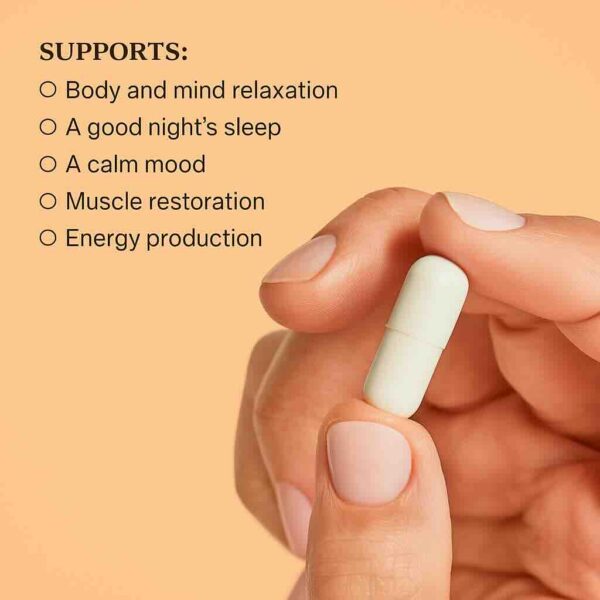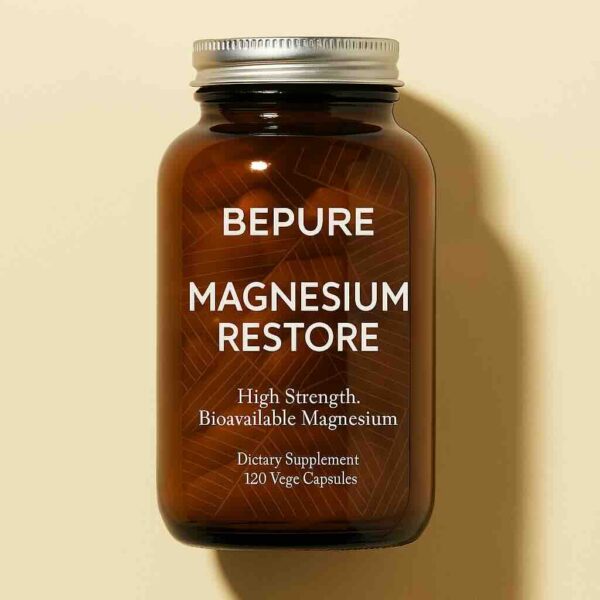Magnesium is one of those unsung heroes of health that we often don’t hear enough about. Yet, it plays a powerful role in how our bodies function every single day. As a naturopath, I’ve seen first-hand how magnesium deficiency can quietly contribute to a wide range of issues, from fatigue and anxiety to muscle cramps and poor sleep.
In this article, I’ll explore why magnesium in your diet is so vital, how you can naturally increase your intake, and how naturopathy, functional testing, and even ozone therapy can all play a role in restoring magnesium balance.
Why Magnesium Matters
Magnesium is involved in more than 300 enzyme reactions in the body. It helps regulate muscle and nerve function, supports a steady heartbeat, balances blood sugar levels, aids in energy production, and even assists in the creation of DNA. Despite its essential role, many people aren’t getting enough often without realising it.
Our modern lifestyle contributes to this. Stress, caffeine, alcohol, processed foods, and certain medications all deplete our magnesium stores. Soil depletion has also led to lower levels of magnesium in the fruits and vegetables we eat, making it more difficult to meet daily requirements through food alone.

Signs You Might Be Low in Magnesium
Low magnesium can manifest in subtle ways: poor sleep, irritability, low energy, frequent headaches or migraines, muscle cramps, eye spasms, and even irregular heartbeats. Clients often come to me with one or more of these symptoms, and magnesium deficiency isn’t usually their first suspicion. Through functional testing, we can identify if low magnesium is part of the picture and take steps to correct it naturally.
The Power of Food First

As a naturopath, I always advocate for a food-first approach whenever possible. Magnesium-rich foods are abundant in a nutrient rich, plant-balanced diet. Some of my favourite sources include:
- Dark leafy greens like spinach, kale, and Swiss chard
- Legumes such as chickpeas, black beans, and lentils
- Nuts and seeds, especially pumpkin seeds, almonds, and chia
- Whole grains like brown rice, quinoa, and oats
- Fish including mackerel, salmon, and halibut
- Fruits such as bananas and avocados
- Dark chocolate (yes, in moderation!)
When my clients are guided to bring more of these whole foods into their meals, the benefits often extend far beyond just replenishing magnesium. They start to feel more energised, calmer, and more in tune with their body’s natural rhythm.
When Food Isn’t Quite Enough
Even with the best intentions and dietary choices, sometimes food alone isn’t enough. This is especially true for those dealing with chronic stress, digestive issues, or specific health conditions like type 2 diabetes or coeliac disease, which can impair magnesium absorption. This is where functional testing can be incredibly insightful. By assessing mineral levels through blood or hair analysis, we get a clear picture of what the body truly needs.
For those who need a boost, I often recommend supplementation—carefully chosen, bioavailable forms that the body can absorb and use effectively.
My Recommendation: BePure Magnesium Restore

I’m incredibly selective about the supplements I stock and recommend, which is why I trust BePure’s Magnesium Restore. It contains highly absorbable forms of magnesium bis-glycinate and ascorbate, which are gentle on the stomach and don’t cause the laxative effect that many magnesium supplements are known for.
What sets BePure apart is their attention to formulation and purity. Their Magnesium Restore also includes Vitamin C and Vitamin B6, both of which help enhance magnesium uptake at the cellular level. This makes it an excellent choice for supporting muscle relaxation, energy production, nervous system balance, and hormonal health.
You can find it in the Healing Wave online shop, where I’ve curated supplements I know and trust.
The Naturopathic Approach to Magnesium Balance
At Healing Wave, we take a holistic view when it comes to restoring magnesium. It’s not just about taking a supplement or eating a handful of almonds. True wellness comes from understanding the root causes of imbalance and supporting the body’s ability to heal itself. Here’s how we weave magnesium support into our wider care philosophy:
- Nutritional guidance: We focus on unprocessed nutrition that naturally replenishes magnesium and co-factors like B vitamins, selenium, and zinc.
- Herbal medicine: Adaptogens such as ashwagandha and rhodiola can reduce magnesium-draining stress and help regulate adrenal function.
- Lifestyle coaching: Mindfulness, deep breathing, gentle exercise, and restorative sleep all play a role in maintaining healthy magnesium levels.
- Functional testing: This allows us to track your progress and make precise recommendations.
- Ozone therapy: While not directly increasing magnesium, ozone therapy supports cellular oxygenation and detoxification both of which improve nutrient utilisation and energy levels.

Magnesium, Mood and Mental Health
Many people are surprised to learn how closely magnesium is tied to mental well-being. This mineral plays a role in neurotransmitter function and helps regulate the nervous system. I’ve worked with many clients who report better sleep, reduced anxiety, and fewer mood swings once they begin prioritising magnesium.
There’s growing research that links low magnesium levels with depression, and while supplementation isn’t a standalone treatment, it’s a valuable piece of the mental health puzzle—especially when combined with holistic therapies.
Magnesium and Hormone Balance
For women, magnesium is particularly important. It supports healthy menstrual cycles, reduces PMS symptoms, and helps buffer the effects of stress hormones like cortisol. During perimenopause and menopause, magnesium can support bone density and sleep—two areas that are often disrupted during this life phase.
A Gentle Reminder About Safety
Although magnesium is generally safe, it’s important to use supplements mindfully. Too much magnesium from supplements (not food) can lead to diarrhoea or digestive upset. If you’re on medications or managing a health condition like kidney disease, always speak with a qualified practitioner before starting any new supplement.

How to Get Started
If you suspect you might be low in magnesium or you simply want to support your wellbeing naturally start with the basics. Add magnesium-rich foods to your meals, notice how your body responds, and consider functional testing if you want more precision.
For extra support, BePure Magnesium Restore is a gentle yet effective way to fill in the nutritional gaps. You can purchase it through our online shop, or get in touch with me for a consultation. Together, we can explore your unique needs and tailor a plan that helps you feel energised, calm, and aligned with your health goals.
Final Thoughts On Magnesium in Your Diet
Magnesium in the diet is more than just a nutritional checkbox it’s a gateway to feeling balanced, energised, and mentally clear. It’s a mineral that supports the body’s natural intelligence, and when we honour that through food, lifestyle, and holistic therapies, our health responds in kind.
If you’re curious about your magnesium status or want support on your wellness journey, I invite you to connect with me through Healing Wave. Whether it’s through naturopathy, ozone therapy, or personalised testing, we’re here to help you feel your best naturally.
Written By Anna Chirchikova, Naturopath, Ozone Therapist – BNat, Dip Nutrition, Dip Herbal Medicine
Sources
https://ods.od.nih.gov/factsheets/Magnesium-HealthProfessional
